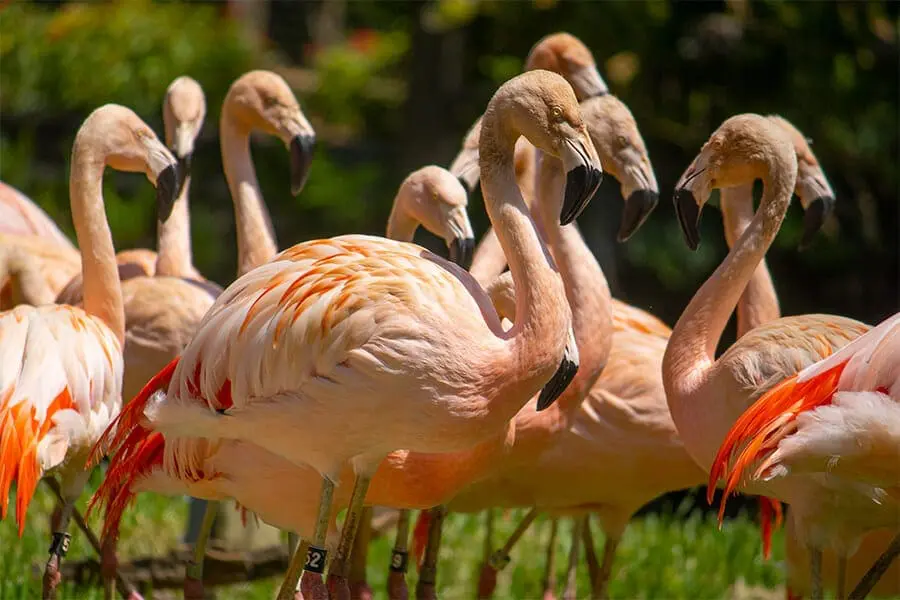

Chilean flamingos are the heart of our institution—their habitat is located right in the middle of the Zoo!
Today is the first-ever International Flamingo Day, and our flamboyance is ready to celebrate! This event, which is organized by the Flamingo Specialist Group, aims to spread awareness about these iconic birds while promoting flamingo conservation worldwide.
Did you know that there are six species of flamingos found throughout the world? The ones that we have at the Zoo are Chilean flamingos, which are native to South America and are considered near threatened due to habitat loss and human hunting.
Other species include the American flamingo, the only species local to the U.S.; the greater flamingo, the largest and most widespread species; the Andean flamingo, the rarest of the species; the lesser flamingo, which is only found in sub-Saharan Africa and parts of India; and the James’s flamingo, which is closely related to the Chilean flamingo, but is lighter in color.
You may think of flamingos as a Florida icon as you’ve surely noticed them in plastic form on lawns or as the symbol of the state lottery. Today’s American flamingos, however, were traditionally considered a nonnative species. Although large flocks of these birds used to forage through Florida Bay and the Keys, their population was almost entirely destroyed due to hunting pressure at the beginning of the 20th century.
Throughout most of the 20th century, flamingos were not common in Florida, and sightings were thought by scientists to be escapees from captive colonies. However, first in 2002 and then in 2010, wild flamingos that were banded as chicks in Yucatán, Mexico appeared in the Everglades National Park and Florida Bay. This evidence proved that at least some of the state’s flamingos are truly wild birds and not escapees or their descendants, as originally thought.
This idea was given further scientific credibility in 2018, when researchers from Zoo Miami and Audubon Florida published a paper detailing their analysis of historical and contemporary records of flamingos in Florida. With the support of additional conservation organizations, including Brevard Zoo, a group of biologists petitioned Florida Fish and Wildlife Conservation (FWC) to remove the American flamingo from the state’s list of nonnative species, opening the door for additional protections. While FWC has not gone so far as to declare them a native species, a biological review of the American flamingo in Florida is now underway.
If you are interested in helping American flamingos in Florida, you can do so by supporting conservation efforts in the Everglades or spreading the word. Make sure to “think pink” today and every day!
This is a challenging time for our Zoo. As a not-for-profit organization that receives no recurring government funds, we rely on earned income from admissions and memberships—and we stand to lose one third of our annual income while we are temporarily closed. That’s why now, more than ever, your support is critical. You can help make an impact by purchasing or renewing a membership, donating to our fund, creating a Facebook fundraiser for the Zoo or simply spreading the word.
